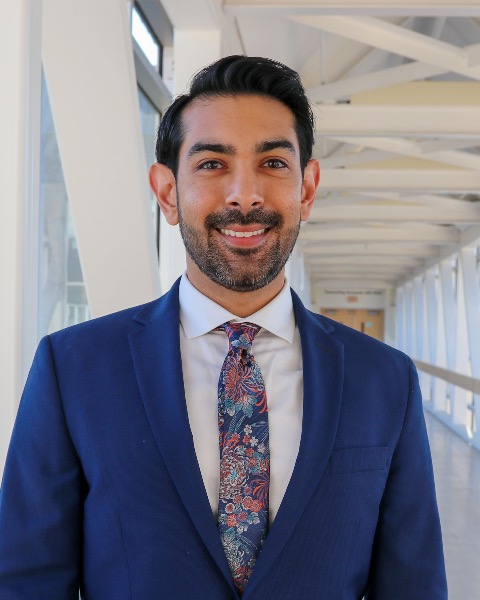Medical Education: Fellow
Medical Education 11: Fellow 2
554 - Implementation and Feasibility of a Fellow-Led Feedback Model in an Academic, Pediatric Program: A Mixed Methods Assessment
Publication Number: 554.325

Yahya Nomaan, ynomaan@iu.edu
Fellow
Riley Childrens Hospital
INDIANAPOLIS, Indiana, United States
Presenting Author(s)
Background:
High quality feedback is a graduate medical education goal; however, trainees report inconsistency in the quality and quantity of feedback received.
Objective: We aim to evaluate the feasibility of implementing a fellow led feedback model within select rotations at an academic, pediatric hospital.
Design/Methods:
In this prospective, single arm, interventional study a mixed-method design evaluated the feasibility of implementing a fellow led feedback model.
Pediatric fellows in the study were from gastroenterology, critical care, and neonatology.
Fellows completed a workshop on the model. Fellows then led feedback sessions with residents and completed a learning change plan (LCP)–actionable learning objectives. The frequency of LCPs evaluated compliance with the model.
PICU piloted the study which then rolled out to the remaining groups in the 2021-2022 academic year.
Fellows completed pre and post-intervention confidence surveys in giving feedback. Fellows participated in semi-structured interviews twice during the study which were transcribed. The transcribed interviews were qualitatively analyzed using thematic approach.
Resident rotation evaluation (RRE) scores were analyzed and compared to the prior academic year's scores.
Results:
73, 35, 18 residents rotated through PICU, NICU and GI services during the study with LCP completion rates of 67, 49, 55%, respectively.
Fellows had statistically significant improvement in feedback provision confidence.
Fellow semi-structured interview analysis suggested implementing this model was feasible and identified barriers and potential solutions.
No difference in pre and post intervention RRE scores.
Conclusion(s):
Our study demonstrates that the implementation of a fellow led feedback model is feasible in an academic, pediatric program..png)
.png)
.png)
